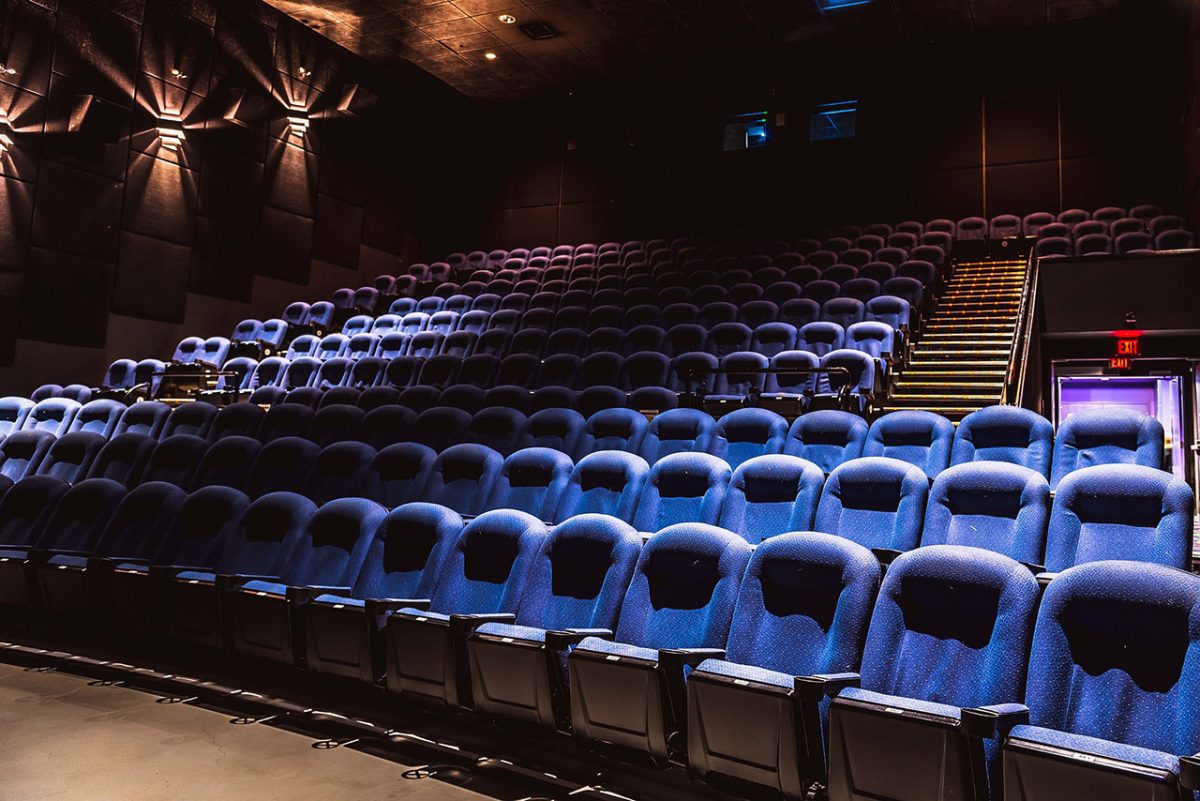The cinematic experience has been one of the many things that have undergone serious transformation as a result of the coronavirus pandemic. And, compared to the millions of lives lost, plundered economies and shift in socioeconomic and geopolitical circumstances, it can seem quite minor. Still, for months I’ve been considering the ways that the pandemic has affected our relationship with art and media.
Shifts in the ways we seek entertainment have been a primary effect of the pandemic. The quasi-shift to digital living and learning has been essential for work and school, the fulcrums of our contemporary society. Amidst that, the pivot to digital for entertainment has been just as complicated. The shift to streaming has become a worldwide necessity amidst the pandemic and Netflix, Prime Video and other streaming platforms have seen an uptick in their subscriptions as a result. (Recently our Mashramani song competitions were streamed online.)
For much of the world, cinemas are closed. Watching movies without going to cinemas is not unusual. For many, their first encounter with so many vital titles in the history of cinema come from home rentals or purchases. But, what does it mean for the movie-lover when cinemas cease to exist? What happens to the movie-going experience when going to the movies is impossible?
In 2019, I saw 180 films from that year. Roughly 150 of them were in movie theatres, scattered across four countries. Going to the movies was like a habit. This was more than just a provision of my work as a critic and more about the ways that I thought of going to the cinema. It didn’t matter what country I was in, or where I was in my life, going to the movies was a ritual. Sitting alone in the dark, but surrounded by people, in the moment just before the credits rolled, the beginning of a movie suggested the idea of anything being possible. No matter how bad the movie turned out, that moment was everything.
I have not been in a cinema in just over a year and I’ve been grappling with the reality and implications of that for a lot of the past few months. What’s so seductive about a cinema, anyway?
The erraticism of the movie-going experience has been critiqued for many years pre-pandemic. Every year of the last decade saw some article about the imminent end of cinemas. There was so much to despise about them. The dirty floors. The inflated ticket prices. The even more inflated concessions. The unruly movie-watchers. The texting and phone-calls. The heckling. Why bother? But going to the movies was about more than the worst of it. The paradox of being alone with your thoughts, but surrounded by people, is critical. Only you can navigate your response to the projected images before you, but when that personal response bled into something collective? That enchantment is indescribable.
For many, that enchantment is rooted in blockbusters. I can remember the whoops of Guyanese joy when Letitia Wright appeared in “Black Panther”. Or, the gasps from the audience at the final twist in “Mission Impossible: Fallout”. But it’s not just the blockbusters. There’s also the laughter that swept through a cinema in Toronto when Carey Mulligan made a cutting remark about Canada in “Wildlife”, or the delightful commentary of a woman during the second-act twists of “Phantom Thread”. So much about loving movies is about loving people. Film, like all art, is rooted in an understanding and appreciation of humanity. The shared laughter with a stranger watching a new movie. Or, the confounded bafflement leaving the cinema where you and someone you just met wonder at what you saw.
Going to the movies is about the community even when it’s also about being alone. The movie-going experience is in a way inherently isolationist – you observe the screen alone, in the dark, observing what appears before you. But being alone in the dark, surrounded by others, is a sensation hinging on a paradox that captures the beauty of cinema. And, when the quiet of the dark is pierced by a collective response of rapture (or dismay) there’s something seductive about being in the cinema that cannot quite be replaced.
But it’s not just the community. For me, movie-watching in the pandemic has been marked by a constant negotiation of disassociation. The cinemas give you that, without pause. You are alone in the dark with no control. The film plays, or stops, without your control. It is a moment to completely give yourself over to the art. At home, streaming depends on internet, or a DVD or electricity. There are so many opportunities to be distracted, and it’s as much a state of our mental health during the pandemic as it is a reminder of the ways that going to the movies depend on giving up control. To engage with the art unfiltered. To sit back and just take it in. We dive into the lake of the cinema and let it wash over us.
If theatres opened today, I probably would not go; the anxiety of the pandemic would make the particles of germs in a cinema a disincentive. But that cannot stop me from yearning for the moment when I can be alone in the dark with other people again.
I miss going to the movies.






